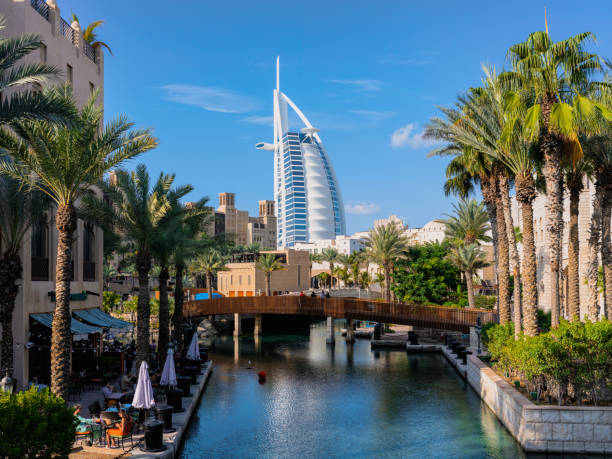Introduction to Dubai Residence Visa

Securing a residence visa in Dubai is an essential step for foreign nationals intending to live and work in this thriving city. This visa not only grants you legal residency but also opens up numerous opportunities in terms of employment, education, and lifestyle enhancements within the UAE. The procedures and requirements may vary based on the type of visa you are applying for, but understanding the fundamentals can greatly simplify the process. In this article, we will explore everything you need to know about obtaining a Dubai residence visa, including eligibility criteria, necessary documents, and the application process.
How to get residence visa in Dubai

Dubai offers several types of residence visas to cater to the diverse needs of expatriates, including employment visas, investor visas, family visas, and student visas. Each visa type has unique requirements and benefits designed to accommodate different circumstances:
- Employment Visa: This visa is commonly issued to individuals who have secured a job in Dubai and their employers sponsor them. It typically requires a valid employment contract and an approved work permit.
- Investor Visa: For individuals wishing to invest in Dubai’s economy, an investor visa is available. This requires proof of investment in a UAE-based company or property.
- Family Visa: This visa allows residents to sponsor family members, including spouses, children, and parents, providing they meet specific income requirements.
- Student Visa: Students enrolled in UAE educational institutions can apply for a student residence visa, which requires proof of enrollment and sufficient financial resources.
Understanding these types will help you choose the right visa category that matches your circumstances and intentions for living in Dubai.
Eligibility Criteria for a Dubai Residence Visa

Before applying for a residence visa, it is critical to ensure that you meet the eligibility criteria set by the UAE government. While the requirements may differ based on visa type, the standard criteria include the following:
- Possession of a valid passport with at least six months’ validity.
- Fulfillment of the financial requirements, including proof of sufficient income or investment.
- No criminal record or serious legal issues.
- Medical fitness and health insurance compliant with UAE laws.
Additionally, specific types of visas may have unique eligibility requirements. For example, the employment visa usually demands a job offer from a UAE employer, while the investor visa requires proof of investment worth a minimum amount as specified by the government. Therefore, it is crucial to thoroughly review the eligibility criteria of your chosen visa type before proceeding with your application.
Required Documents for Application
The documentation required for a Dubai residence visa application can be extensive. Having all the necessary paperwork in order can significantly enhance the chances of a successful application. Typically, you will need the following documents:
| Document Type | Description |
|---|---|
| Passport | A valid passport with at least six months of validity and blank pages for stamps. |
| Passport-sized Photos | Recent color photographs that adhere to the UAE’s specific passport photo requirements. |
| Employment Contract | A copy of your work contract if applying for an employment visa, signed by your employer. |
| Medical Fitness Certificate | Proof of a successful medical examination conducted by an approved clinic in the UAE. |
| Proof of Accommodation | Evident documentation showing your residence in the UAE, such as rental agreements. |
Additional documents may be required based on the specific visa type, so it is essential to check with the relevant authorities or your employer to ensure you compile the complete list. Missing or incorrect documents can lead to delays or even a denial of your visa application.
The Application Process Step-by-Step
The application process for a Dubai residence visa can be broken down into several key steps. Following these steps methodically can help you navigate the procedure with ease:
- Gather Required Documentation: Start by collecting all necessary documents as highlighted earlier, ensuring they are correctly completed and submitted.
- Submit Application: Depending on your visa type, submit the application through the relevant authority, typically either the General Directorate of Residency and Foreigners Affairs (GDRFA) or the Ministry of Human Resources and Emiratisation (MoHRE).
- Acknowledge Payment: Pay the applicable fees for your visa application. Make sure to keep all payment receipts for your records.
- Undergo Medical Examination: Arrange for a medical fitness test at an authorized healthcare facility, which usually includes tests for communicable diseases.
- Receive Your Visa: After successfully completing all requirements and processing the application, you’ll receive an electronic copy of your residence visa.
It’s essential to track your application status after submission to respond promptly to any requests for additional information or documents. Efficient handling of your application demonstrates professionalism and can speed up the processing time.
Medical Examination and Health Insurance
The medical examination is a critical step in the Dubai residence visa application process. All applicants need to undergo a health assessment at an authorized medical facility, where various tests will be conducted to ensure they do not have any communicable diseases or chronic health issues. Typically, this examination includes screenings for infections like HIV, tuberculosis, and hepatitis, among other conditions. The results of these tests are crucial, as a negative outcome is required to proceed with your visa application successfully. It is advisable to undergo this medical examination as soon as possible within the application timeline, as delays can hinder the overall processing of your visa.
Moreover, obtaining health insurance is mandatory for all residents in the UAE. The insurance must meet specific criteria laid out by the government, including coverage for emergencies, hospitalization, and outpatient services. Applicants should look for policies that not only fulfill the minimum requirements but also offer comprehensive services that cater to their personal healthcare needs. Additionally, some employers provide health insurance as part of the employment package, while others offer allowances to cover this essential requirement. It’s wise to review various health insurance providers to ensure you choose a plan that is both affordable and provides adequate coverage.
Visa Fees and Financial Requirements
Understanding the financial aspect of securing a residence visa in Dubai is as crucial as the procedural steps. The costs associated with the visa application vary significantly depending on the type, duration, and specific requirements of the visa you are applying for. Generally, the fees can range from a few thousand AED for basic visas to over 20,000 AED for investor or specialized visas. This cost usually includes application fees, medical examination fees, and potential fees associated with health insurance. Additional costs may apply for other services, such as document translations or legalizations, if necessary.
Moreover, applicants must demonstrate sufficient financial means to support themselves during their stay in Dubai. For employment visa applicants, proof of salary or an employment contract can serve to meet this requirement. Investors need to showcase their investment documentation, while family visa applicants may have to provide proof of the sponsor’s income. Presenting a clear financial plan or bank statements showing a steady income can significantly enhance your credibility during the application process. For a smooth experience, ensure you budget not only for the visa fees but also for living expenses, health insurance, and any potential family-related costs.
Common Mistakes to Avoid During the Application
Applying for a residence visa can be complex, and there are several common pitfalls applicants should avoid to ensure their application is successful. One of the most frequent mistakes is not thoroughly understanding the required documentation for their specific visa type. Applications can easily be delayed or rejected due to missing or incorrectly formatted documents. Therefore, it’s critical to carefully review the requirements before submission. Another common error is overlooking the expiration dates on critical documents, such as passports or medical certificates, which need to be current and valid throughout the application process.
Furthermore, applicants often underestimate the importance of attention to detail when filling out the application forms. Incorrect or incomplete information can lead to unnecessary delays or denials. Additionally, applicants should not ignore the importance of having their documents professionally translated, if necessary, especially for legal or employment-related documents. Seeking assistance from immigration experts or consultants familiar with Dubai’s residency policies can be beneficial to avoid these pitfalls. Lastly, ensuring timely submission of the application and following up on its status can help circumvent potential issues.
Renewal and Cancellation of Residence Visa
Once you’ve secured your Dubai residence visa, it’s important to stay informed about renewal procedures and circumstances that might lead to cancellation. Residence visas usually have a validity ranging from one to three years, after which they must be renewed to maintain legal residency in the UAE. The renewal process typically involves submitting a new set of documents, including updated medical fitness certificates and proof of continued residency. It’s advisable to initiate this process well in advance of the expiry date to avoid any unnecessary fines or disruptions to your residence status.
On the other hand, there are various reasons your residence visa may be canceled, including job termination, failure to comply with local laws, or changes in your personal circumstances. If your visa is canceled, it is generally required to leave the country within a specific grace period, or you may face legal consequences. Therefore, it’s crucial to stay updated on your visa status and promptly act upon any notices received from the authorities. Familiarizing yourself with local laws and guidelines regarding residence visas can prevent any unexpected issues from arising.
Conclusion
In conclusion, navigating the process of obtaining a Dubai residence visa requires thorough understanding and careful preparation. From recognizing the various types of visas available to ensuring you meet the eligibility criteria and compiling the necessary documentation, each step is crucial for a successful application. Being mindful of medical requirements and understanding the associated fees can make the process smoother. Avoiding common pitfalls can save time and resources, while staying informed on renewal and cancellation procedures ensures continued compliance with UAE regulations. By adhering to these guidelines, you can enhance your chances of securing your dream residence in the vibrant city of Dubai.
FAQs
How long does it take to process a Dubai residence visa?
A1: The processing time for a Dubai residence visa typically ranges from a few days to a few weeks, depending on the type of visa, the completeness of your application, and the specific situation.
Can I work in Dubai with a residence visa?
A2: Yes, you can work in Dubai with a residence visa, provided it is sponsored and linked to an employment contract. Ensure that your employer secures the necessary work permit for you.
What is the cost of obtaining a Dubai residence visa?
A3: The cost varies depending on the visa type and duration, with fees ranging from a few thousand AED to around 20,000 AED or more, inclusive of medical tests and insurance.
How often do I need to renew my Dubai residence visa?
A4: A Dubai residence visa is typically valid for 1 to 3 years, depending on the type and sponsor. You should renew it before its expiration date to avoid fines.
What should I do if my Dubai residence visa application is rejected?
A5: If your application is rejected, review the reasons provided, gather any missing documentation, and consider reapplying. You can also seek clarification from the relevant authorities for guidance.


